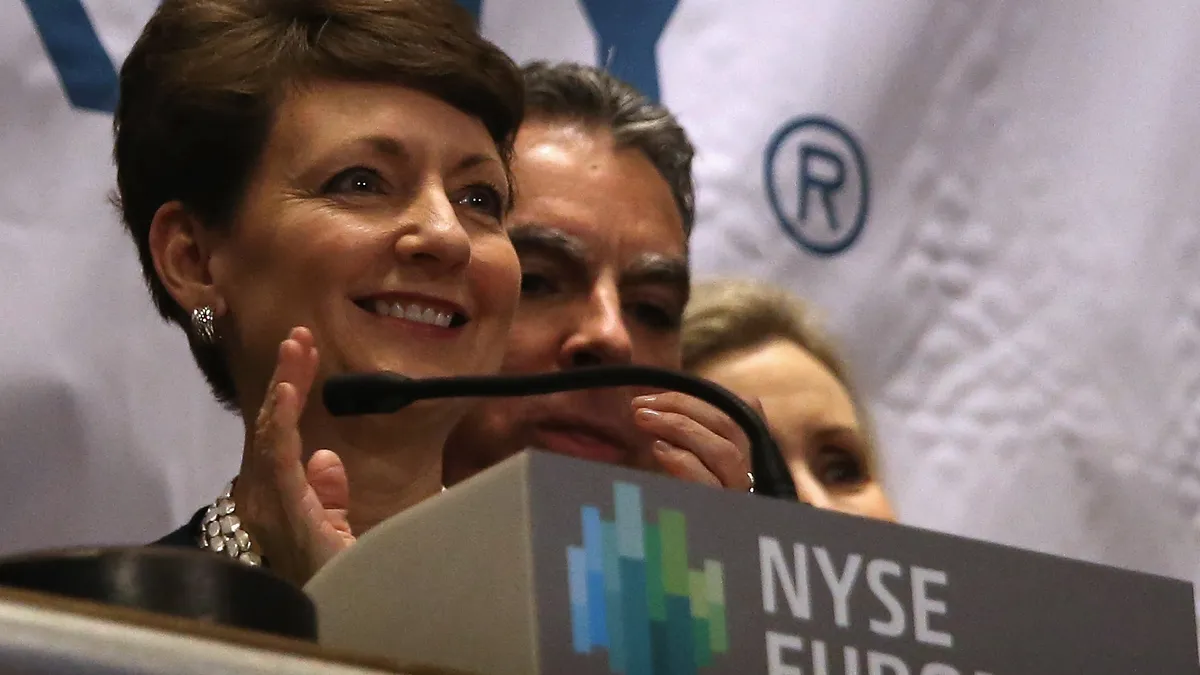Dive Brief:
-
Elliott Investment Management on Monday sent a second letter to Duke Energy's Board of Directors criticizing the utility's performance, citing "broad agreement that a series of execution missteps has led to the erosion of value in what was once a premium utility company."
-
The investment company, which says it's one of the utility's largest investors, repeated its previous assertion that Duke is underperforming due to poor management, and it accused the company's board and executives of making decisions "driven primarily by self-interest, with limited consideration of shareholders, customers and other stakeholders." It also sought to dispute parts of the utility's "aggressive and hostile response" to its initial proposal to break the company into three separate utilities.
- Duke, in its response to Elliott's letter on Monday, accused the fund of pushing a "short-term agenda at the expense of long-term shareholder value." Elliott made its initial recommendation that the utility break apart in May, citing the utility's underperformance throughout the 2010s. Some analysts questioned the timing of the proposal, though, as the utility's financial performance is on an upswing.
Dive Insight:
Monday's letter questions whether Duke's current leadership is equipped to maximize the full value of the utility, which provides service to territories across the Carolinas, Tennessee, Indiana, Kentucky, Ohio and Florida. In its previous letter, the investment company proposed that Duke conduct an "unbiased review" as to whether splitting its operations into Midwest, Florida and Carolinas/Tennessee companies would benefit shareholders.
Stakeholder feedback in response to its initial letter "consistently reflected a lack of confidence in management's ability to execute," according to Elliott, and found the utility threatens to leave investors and employees "significantly worse off than they would be had the Company executed at a higher level." Duke has underperformed by $10 billion to $30 billion since 2013, according to Elliott, and earnings per share guidance has fallen 20% below what the company had originally estimated.
Elliott specifically points to high rates and reliability issues in its Florida territory, intentional underinvestment in its Indiana subsidiary, and "inconsistent" performance in its Carolinas territory. It says its proposal to break apart the utility is one viable option to explore, but that stakeholders have come up with several other options to improve the utility's performance as well.
"While we suggested one course of action in our May 17 letter, there are numerous viewpoints, and it is clear that this is fertile ground for investor interest," the letter states, adding that Duke cannot be trusted to "undertake this evaluation without the benefit of fresh perspectives and a process that promotes independence and transparency — which is precisely what we have proposed."
Among its other management critiques, the company says Duke executives are excessively compensated, consistently rewarded despite poor outcomes and lack sufficient oversight. Elliott further says its dialogue with the company has been "marked by defensiveness and a refusal to engage in good faith with our proposals." It recommends that the utility improve the board's independence, address performance issues in Florida and Indiana and prove to investors how it would "close its valuation gap" with other utility companies in similar territories.
Duke, in its response, said the investor "has again failed to provide any concrete and specific ideas to increase shareholder value, choosing instead to launch public attacks supported by cherry-picked data and anonymous sources."
Duke continued to push back against the breakup proposal, which it said investors and analysts "were near universal" in opposing it.
"Duke Energy will continue running the business in the best long-term interests of all shareholders and stakeholders, and not those of a single hedge fund focused only on the short-term and with a decidedly mixed track record in its other interventions in the utility sector," the utility said in a statement.















